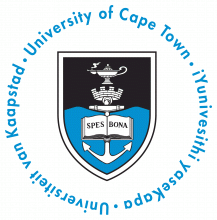Higher education across the world faces a “scary moment” amid threats from artificial intelligence, casualisation, austerity and unbundling, it has been warned.
Laura Czerniewicz, a professor emerita at the University of Cape Town, said the climate of austerity has been a “global phenomenon”, and has been accompanied by the increase in casualisation of academic staff.
“You have people feeling isolated, feeling anxious, an incredible insecurity and a wish to address the needs of students who are also facing a huge string of problems,” she said.
Alongside these, Professor Czerniewicz, co-author of a new book, Higher Education for Good, said new problems had also arisen.
“It’s a concatenation of a whole lot of factors that are coming together,” she said.
“You add austerity, you add AI, you add unbundling and throw them all together and that makes it a very scary moment.”
She said that the introduction of big tech into higher education has been a phenomenon in recent years across both the Global North and the Global South.
“Largely big tech offered to solve a whole lot of problems and once they were in the door, the challenges have become entrenched,” she said.
Catherine Cronin, co-author of the book, which features chapters from academics across 17 countries and various disciplines, said many of the problems with higher education predate Covid-19 – including increasing inequality, lack of access, rising use of technology – but had accelerated during the pandemic.
Ms Cronin said she was struck by the similarities in the chapters by the different authors, which, considered together, advance a cause for higher education that is “just, humane, and globally sustainable”.
Professor Czerniewicz said the starting point for the book was that the “current situation is pretty grim” but needs to get better.
“What we want to do with this book is offer some ideas from people’s experiences that they are trying.
“There’s a sense of being stuck when things are so bad. The book offers what one might do.”
Ms Cronin said the authors were asked to pinpoint aspects of the sector where one might find hope, but this was a struggle.
“Because they are in and of higher education at the moment, many found it difficult to identify avenues of hope.
“We’re not waving the banner of hope in a way that is insensitive to what people are experiencing in higher education.”
Writing the foreword for the book, Jonathan Jansen, distinguished professor of education at Stellenbosch University, said the sector efforts to reimagine the modern university must include everything from infrastructure to pedagogy and to forms of assessment.
“This courageous book works with an unspoken proposition, that we cannot wait for the neoliberal university to transform itself.”
Register to continue
Why register?
- Registration is free and only takes a moment
- Once registered, you can read 3 articles a month
- Sign up for our newsletter
Subscribe
Or subscribe for unlimited access to:
- Unlimited access to news, views, insights & reviews
- Digital editions
- Digital access to THE’s university and college rankings analysis
Already registered or a current subscriber? Login






